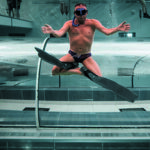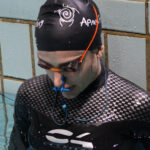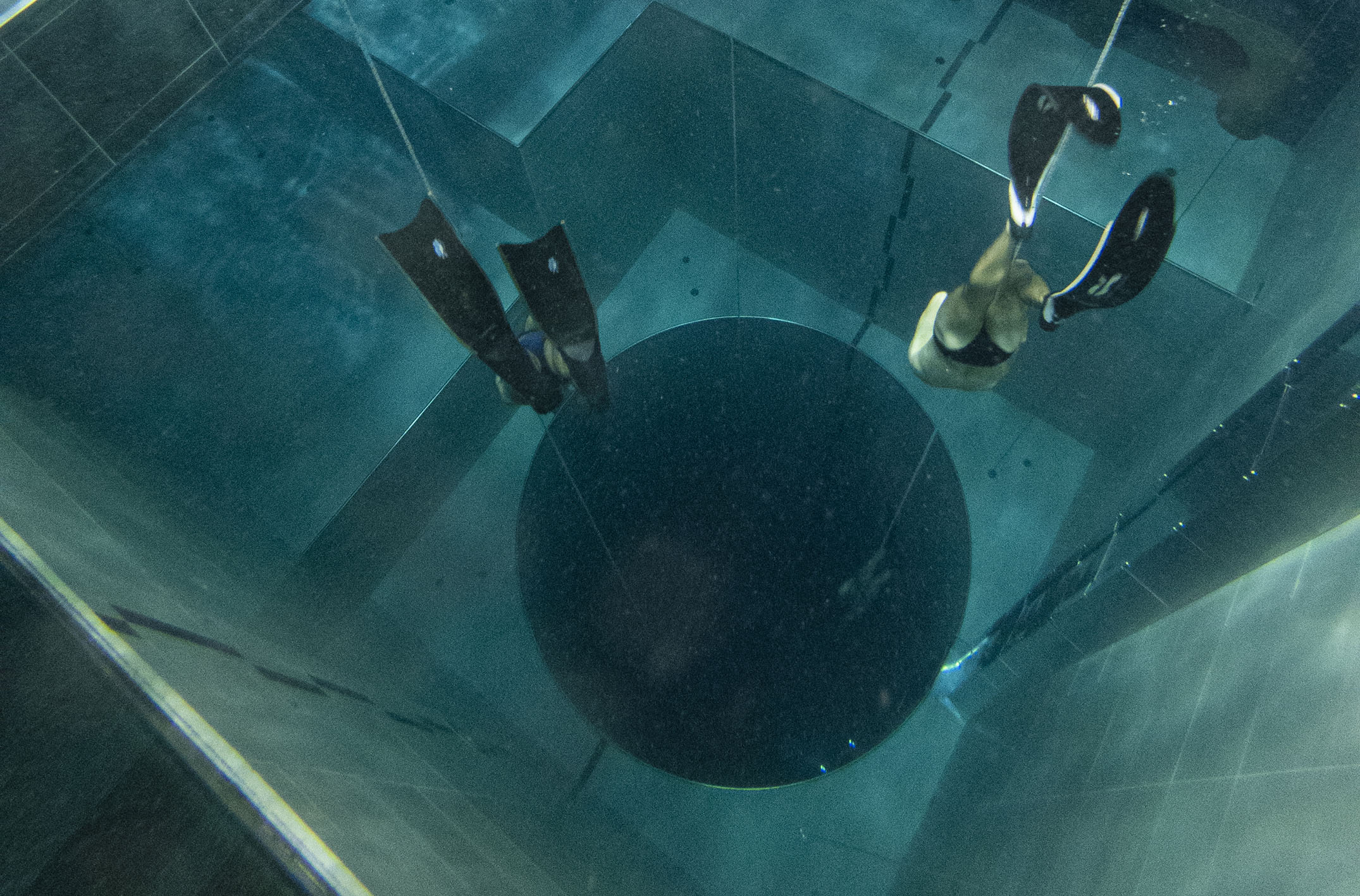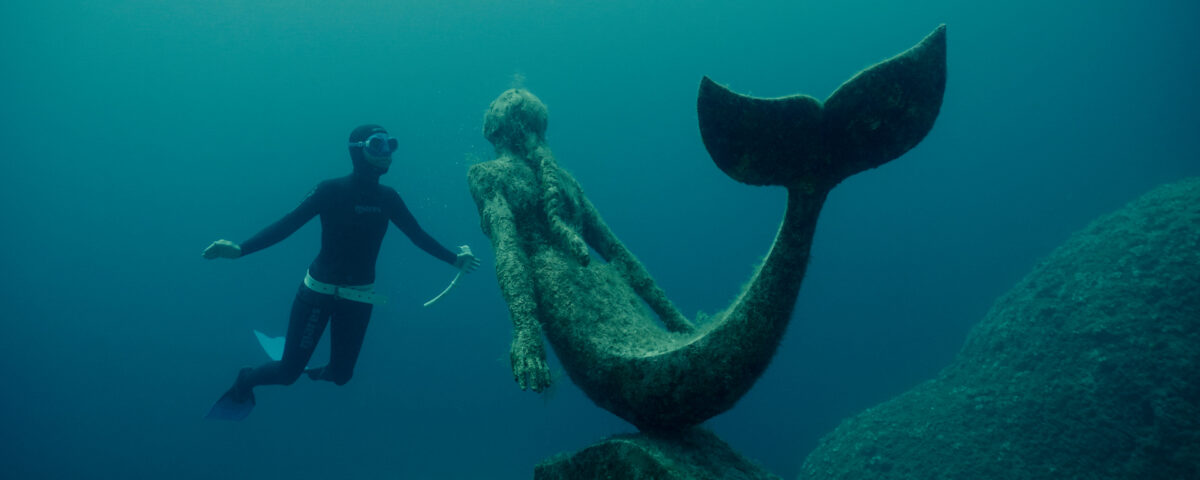How does our mind work? Keyword: awareness

Marco Mardollo, Mr. Y-40
25 April 2024
It’s quick to say nose clip
27 April 2024It means having a clear understanding of one's internal experience and the external world. And it means being able to keep anxiety at bay in crucial moments, like those of a deep dive. The systems to achieve this and how to train the activation state
Djimmy Carpanzano
How does our mind work and how does it affect freediving performance? Our brain, the result of thousands of years of evolution, operates fascinatingly through incredibly complex and diversified mechanisms, combining cognitive, emotional, and sensory processes. One of the key words to use to understand the mind is "awareness", understood as self-awareness, awareness of one's own thoughts, emotions, and the surrounding environment. The greater awareness we manage to have of ourselves, the better our performances will be, both in freediving and in life experiences. The human mind processes information through various cognitive processes such as memory, attention, language, and problem-solving. Processes that allow us to interpret and react to the world around us, while emotions influence how we perceive and interact with others and the environment. Being aware, therefore, means having a clear understanding of one's internal experience and the external world. Awareness implies being present in the moment, observing one's thoughts and feelings without judgment. This can be developed through meditation practices, a topic that is fundamental for us freedivers. Another significant factor is the environment in which we interact, constantly exposed to external stimuli to which we are obliged to respond. Our mind is a complex system that processes information and experiences in ways that often exceed our immediate understanding, and being aware is the key to accessing a deeper understanding of ourselves and our place in the world.
Can the mind be trained?
Many athletes, despite impeccable physical and technical preparation, fail in crucial moments due to mental limitations, demonstrating how important a balance between body and mind is necessary to achieve the condition called "flow state", a circumstance in which performance occurs with apparent ease and often coincides with maximal performance. This happens because the human mind has the quality of being plastic, that is, it has the ability to learn and constantly adapt, evolving and changing in response to new experiences, in the same way that the body "molds" and strengthens itself through physical exercise. So the answer is yes: it is possible to train the mind to improve its abilities. A freediver aiming to enhance their performance should incorporate mental training into their training sessions, treating it on par with physical training. This approach not only strengthens the body but also hones crucial mental abilities such as concentration, analytical thinking, and emotion management. There are numerous ways and techniques to work on mental training; in this issue, we will delve into arousal management.
The state of arousal: what is it?
World Cup final. Decisive penalty shootout. The most experienced player, aware that his goal would lead the team to victory, stands facing the opposing goalkeeper. A few moments of anticipation, then the run-up, the kick, and unbelievably, the ball goes wide. Despite his demonstrated skill in training, the unlucky player has missed at the most crucial moment of the game and perhaps of his career. What happened to his mind and body before taking the penalty, and what were the causes that led to the mistake? Awareness of the importance of the moment may have generated immense psychological pressure, negatively influencing his concentration and triggering excessive anxiety, causing the player to focus on possible negative outcomes rather than on execution technique. These mechanisms led to an increase in heart rate and breathing, altering coordination and motor control, and an increase in muscle tension, thus losing instinctiveness and fluidity, qualities necessary to execute the technical gesture effectively. A combination of psychological and physiological factors may have influenced the player, causing him to miss a penalty that he would normally have scored. In the described example, it is clear that the player was in a state of excessive activation. However, the situation could have had a different outcome if he had the necessary awareness to recognize and effectively manage the intense emotions and sensations of that crucial moment. Similarly, too low arousal level would have led to a state of boredom and disinterest in the athlete, consequently reducing concentration and negatively influencing performance.
How to train the state of arousal?
Managing arousal is crucial to optimizing performance, in sports in general, but especially in freediving, where pressure and anxiety can significantly influence performance. To learn to manage the state of arousal, an effective first step is to practice controlled breathing, such as deep diaphragmatic breathing, which can help reduce high arousal states by working on relaxation and reducing anxiety and stress. Mindfulness practices, which help focus on the present, also reduce anxious or distorted thoughts that can increase arousal. A great example that can increase confidence and reduce anxiety is visualizing oneself performing the technical gesture or achieving the final goal. Additionally, establishing a pre-game routine is useful for controlling arousal state, providing a sense of familiarity and control, as well as listening to relaxing or motivational music, depending on whether the goal is to calm down or get charged up. The key is to find the optimal level of arousal for each individual and specific situation, which can vary depending on the discipline and the individual.



